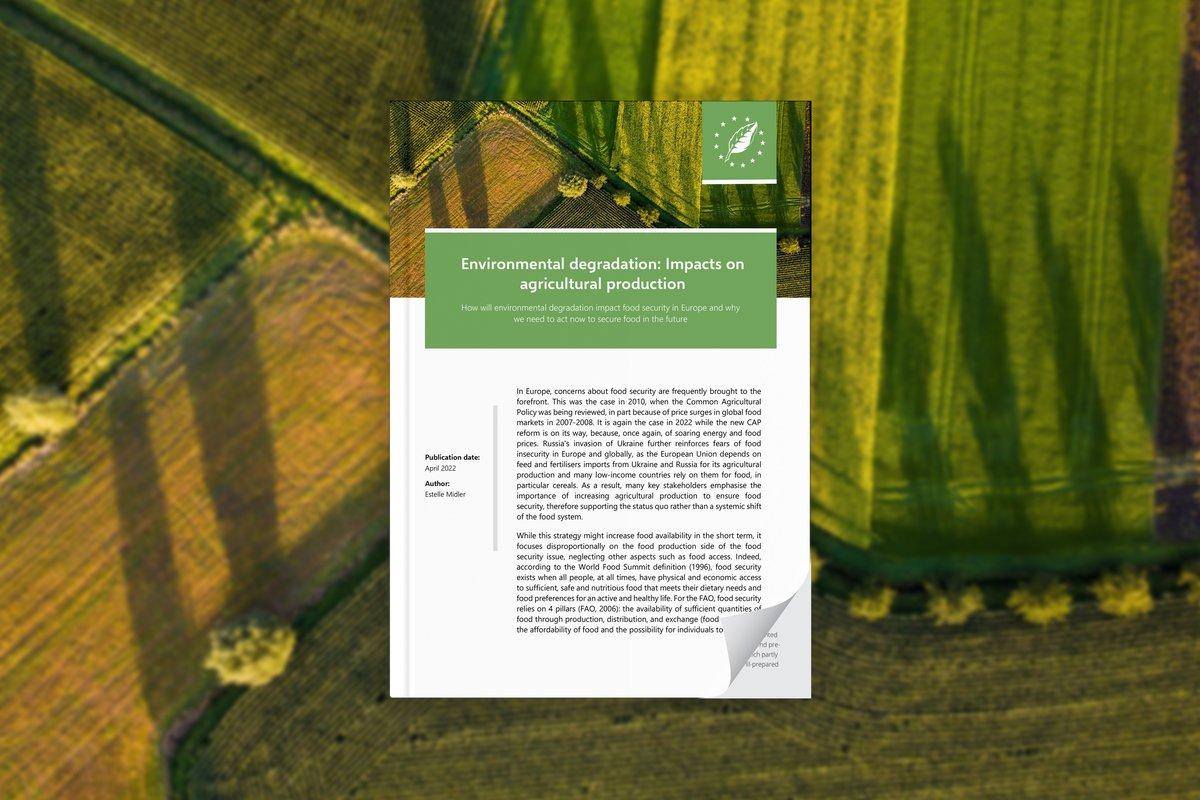AUTHOR: Estelle Midler
This briefing reviews existing evidence on the impact of environmental degradation on European food availability in the long run, if food systems are to remain as they are. It focuses on climate change, biodiversity loss and soil degradation.
Climate change is already impacting global crop yields, yield stability and the quality of crops and these impacts will intensify in the future, as highlighted by the recently published IPCC report on climate impacts. For instance, researchers estimated that under a 2°C scenario, wheat production yields would be reduced by 12% in the southern regions of Europe, or even by half in some areas. Grain maize yield potential would also be reduced, reaching crop losses of up to -80% in some southern European countries (Portugal, Bulgaria, Greece and Spain). In addition to impacts of climate change, biodiversity loss threatens the provision of the ecosystem services necessary to grow crops.
For instance, it has been estimated that the absence of pollination would lead to a reduction of between -25% and -32% in the total production of the 85% of food crops (mainly, fruits and vegetables) that partially depend on insect pollination in the EU. Soil degradation, which affects 61% to 73% of agricultural soils in the EU, is also having a negative impact on food production, with erosion alone already causing losses of almost 3 million tonnes of wheat and 0.6 million tonnes of maize per year in the EU.
This policy brief reviews existing evidence on the impact of these three important environmental degradations on European food production in the long run, if food systems are to remain as they are. While it focuses on the production side, it is worth noticing that food production won’t be the only aspect of food security threatened as food access (due to high food prices), food quality and safety (e.g. because of the loss of nutrients in food or the development of pathogens) and food stability (because of the increased frequency of extreme weather events that will disrupt production and distribution) will also be impacted. Overall, results show that, while the short-term costs for some of transitioning to sustainable food systems will need to be carefully and justly managed, the long-term cost of inaction is likely to be far greater.
To ensure that all pillars of food security are secured in the long term, actions should be implemented now and target the main sectors responsible for those environmental degradations. These actions should include: i) reducing GHG emissions in all sectors (as highlighted in the last IPCC report on mitigation); ii) reducing water and soil pollution from industries; iii) reducing soil sealing, land take, and contamination from urban areas; as well as specific actions in the agricultural sector to iv) reduce pesticides and fertilizer use, v) increase landscape complexity, vi) improve water efficiency and vii) adopt agro-ecological practices (e.g. reduced tillage, catch/cover crops, etc).
To enable this transition, the EU will also have to rethink its consumption patterns. Cutting down food waste, reducing the production of crop-based biofuels and shifting to more plant-based diets would also allow to decrease the ecological footprint of European food consumption in Europe and in third countries, freeing up land for production and ecosystem protection everywhere.

